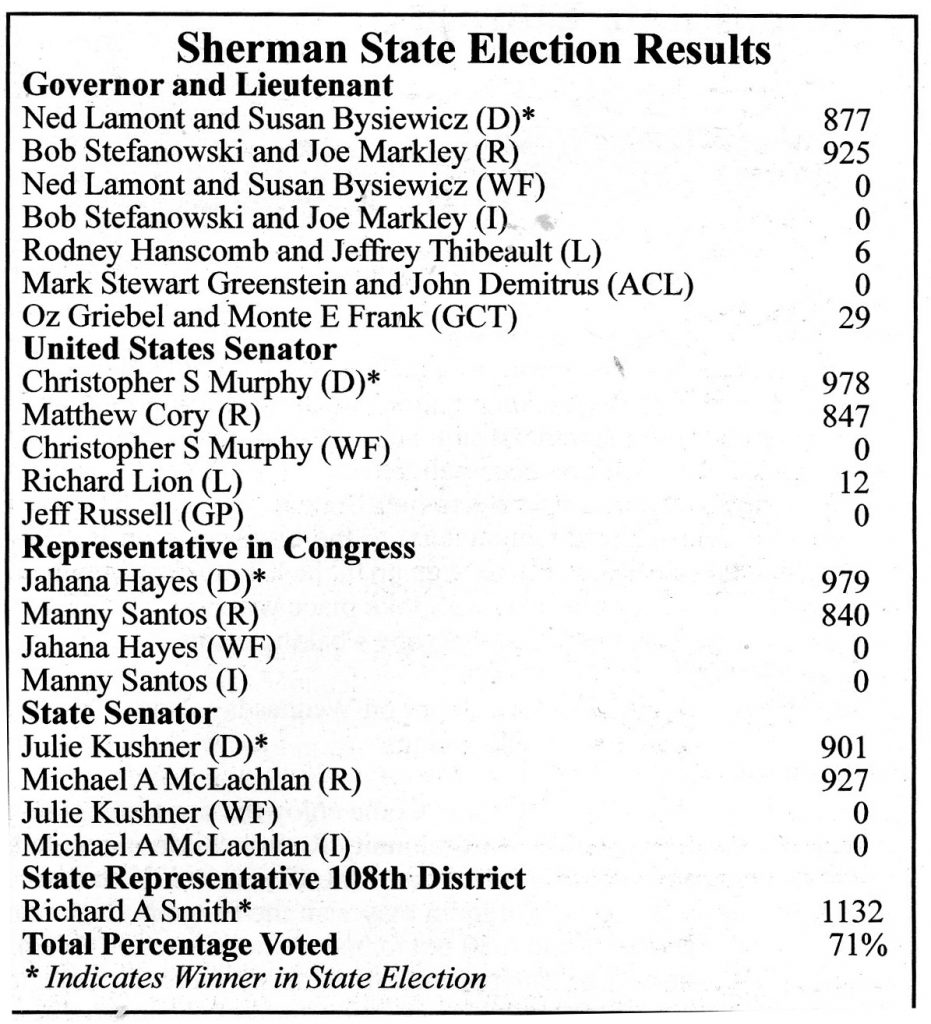June 12, 2021 Updated: June 12, 2021 9:58 p.m.
Written by
Experience, performance and their community’s affluence are among the factors local school boards consider as they set their superintendents’ salaries.
Superintendent average compensation in Fairfield County is higher than in other parts of the state, a Hearst Connecticut Media analysis found. The highest salaries are in southwestern Connecticut.
“But we also have to realize that property is much more expensive in that end of the state, so it costs more for living expenses, etc,” said Fran Rabinowitz, executive director of the Connecticut Association of Public School Superintendents.
“It is also a municipality’s ability to pay, which goes into property taxes and all of that,” she added. “It really is dependent on the wealth of the community.”
School board chairs and other officials said they thought the superintendent salaries in their communities were fair.
“It’s fairly compensated,” said Peggy Katkocin, New Fairfield’s school board chair. “I know we walk a delicate line because it’s taxpayer money.”
Superintendents sometimes get various perks. For example, in Bethel, Superintendent Christine Carver received a $10,000 stipend upon the completion of the renovations to Rockwell and Johnson elementary schools.
Rabinowitz said she’s seen that in other districts.
“A superintendent spends an incredible amount of time outside of the normal duties of a superintendent working on a renovation project,” she said.
To become a superintendent, educators must complete a certification program approved by the Connecticut Board of Education. A doctorate degree is not required, but many districts pay more if the superintendent has a Ph.D.
“There is high demand for top quality superintendents, so the wages clearly reflect that,” Redding First Selectwoman Julia Pemberton said. “For a school district like Redding, we want in a superintendent one of the best educators in the state and even the nation.”
Superintendents in Danbury, Brookfield, Bethel, Ridgefield, New Fairfield, Newtown, Sherman, and Easton, Redding and Region 9 have doctorate degrees.
“You need to get really qualified people who are not only good educators, but good administrators and incredibly good communicators to do these jobs,” Brookfield First Selectman Steve Dunn said.
Pay per student
The pay per student varies greatly in the Danbury area, with Sherman’s Superintendent-Principal Jeff Melendez earning about $887 per student, compared to the around $20 per student that Danbury Superintendent Sal Pascarella gets.
More Information
Superintendent pay per student
Sherman: $887.42
Region 12: $298.59
New Fairfield: $107.94
Brookfield: $93.73
Region 9: $90.04
Bethel: $75.26
Region 15: $67.03
Ridgefield: $57.95
Newtown: $54.45
New Milford: $52.08*
Danbury: $20.10
Per a Hearst Connecticut Media analysis of 153 superintendent contracts in the state
*This figure reflects the superintendent’s salary when she was the interim leader
Danbury area superintendent salaries
Ridgefield Susie Da Silva: $264,000 (No. 11 in the state)
Brookfield John Barile: $240,240 (No. 21 in the state)
Danbury Sal Pasarella: $237,874 (No. 23 in state)
Region 15 Josh Smith: $235,487 (No. 27 in state)
Bethel Christine Carver: $232,492 (No. 29 in state)
New Fairfield Pat Cosentino: $230,125 (No. 31 in state)
Easton, Redding, Region 9 Rydell Harrison: $225,000 (No. 34 in state)
Sherman Jeffrey Melendez: $223,631 (No. 35 in state)
Newtown Lorrie Rodrigue: $220,692 (No. 39 in state)
Region 12 Megan Bennett: $205,428 (No. 55 in the state)
New Milford Alisha DiCorpo: $194,400* (No. 85 in the state)
Per a Hearst Connecticut Media analysis of 153 superintendent contracts in the state
*This figure reflects the superintendent’s salary when she was the interim leader
The salary for Danbury’s superintendent appears “quite low given the number of students that there are and the number of challenges,” Rabinowitz said.
Superintendents still have many of the same responsibilities, regardless of district size, Rabinowitz said. Most superintendents work at least 60 hours a week, she said.
“The work is the work,” said Christine Carver, superintendent in Bethel who makes about $232,000 and runs a district of around 3,000 students. “It doesn’t matter if you have 18,000 students or 3,100 students.”
But she noted urban districts have a “tremendous amount of increased needs.”
Dunn said he was initially surprised superintendents in bigger districts like Bridgeport or Hartford didn’t earn two to three times Brookfield’s superintendent. John Barile earns about $240,000, which is almost $94 per student.
But Dunn said he realized smaller towns “have the capability to attract really qualified people.”
“To do that, you’ve got to pay more money,” he said.
He said Barile’s salary is fair.
“I don’t think we should be paying ours less,” Dunn said. “I think Hartford should be paying more.”
Barile has done a “superb” job in Brookfield and recently signed another three-year contract, Dunn said.
“I don’t see these as out of place,” Dunn said. “These salaries are what they should be.”
Superintendent Pat Cosentino earns about $230,000 to run the about 2,000-student New Fairfield school system, while Rydell Harrison gets $225,000 from the 2,500-student district of Easton, Redding and Region 9.
Newtown’s Lorrie Rodrigue makes less than $221,000 in the around 4,000-student district.
Megan Bennett earns about $205,000 running the 688-student Region 12, which serves Bridgewater, Roxbury and Washington. She said she has a smaller office staff than larger districts.
“You’re doing more roles in a smaller district,” she said.
Alisha DiCorpo, who became New Milford’s superintendent in February, earned about $194,000 running the about 3,700-student district when she was interim superintendent. A contract signed in March put her salary at $202,000, with an additional $2,000 annuity.
“You really cant compare one superintendency to another,” said Greg Cava, chair of the Region 12 school board. “No. 1, they are different levels of experience. No 2, they are different levels of taxation expectations. No. 3, they have different jobs. Superintendents in Connecticut do different things from town to town.”
School budgets in Region 12 have stayed fairly consistent over the years, Cava said.
“I don’t think anyone is saying we can’t pay the superintendent X dollars because the taxpayers won’t stand for it,” he said.
Factors in pay
New Fairfield looks at the superintendent’s ability to lead and engage with the community, as well as how she has met her goals and how students rank academically against other schools in the state, among other factors in setting the salary, Katkocin said.
“Unfortunately, I think sometime people think you should only evaluate superintendents on whether they make everyone happy,” she said. “That’s impossible for any leader anywhere.”
In Newtown, the board considers the superintendent’s performance and local and general economic factors, said Michelle Ku, school board chair.
“It’s also what the community supported in terms of a budget increase when they came out and voted,” she said.
Typically, the Newtown school board does not have information about what other districts pay, she said.
When Region 12 hires a new superintendent, the school board examines the candidate’s experience, market factors and what the board is trying to accomplish, Cava said. Raises for existing superintendents are based on how he or she fulfilled previously set goals.
“This is not something where you sit down and check off a box and do an evaluation,” he said. “It’s a little bit more subjective than that.”
Student achievement may be one of those goals in districts, but it doesn’t play a large role in the superintendent’s compensation, he said.
“I don’t think people pay a superintendent because they achieve a certain level of testing, unless there were some huge deficiency you were trying to correct,” Cava said. “That’s not a factor here.”
District size and the superintendent’s background is considered in New Fairfield, too, Katkocin said.
“You certainly wouldn’t pay a brand new superintendent what you would with a superintendent with more experience,” she said.
The way superintendents managed the coronavirus pandemic is likely to be another factor, Katkocin said.
“I’m sure every Board of Education is looking at how their superintendents functioned in this very difficult year,” she said.
Attracting strong candidates to tough job
The average tenure of a superintendent in Connecticut is four years, Rabinowitz has said.
That’s not good because the “quality of education suffers” when there is superintendent turnover, said First Selectwoman Julia Pemberton, a former member of the Region 9 school board.
“I’m not concerned about super salaries per se,” she said. “What I am concerned about is that our superintendents are being put in positions that lead to them leaving their jobs and going elsewhere. I think we see that around Fairfield County, it is like musical chairs.”
Social media has made superintendents’ jobs harder, and parents expect to have constant access to the superintendent, Pemberton said.
“You’re doing the job of public relations and you’re also the educator in chief of the community,” she said. “Those barriers have fallen. That’s a good thing, but I think our superintendents in many districts become overworked.”
Superintendents are responsible for everything in their district and are always on call, officials said.
“Any time there is an incident in their school, any time a fire alarm goes off, everything falls on the superintendent’s desk,” Katkocin said. “They need to answer to everything.”
Superintendents have advanced degrees, are experts in their fields and manage a “complex system,” Carver said.
“There are some people who still think I don’t work during the summer,” she said. “When I tell you it’s 24-hour, seven-day-a-week job, you can just talk to my husband. I rarely take a vacation where I don’t have to be constantly responding to things.”
Julia Perkins has been a reporter with The News-Times since June 2016 and covers the towns of Bethel and Brookfield. She also has covered breaking news for Hearst Connecticut on weekend mornings. Graduating from Quinnipiac University in 2016, she served as the editor-in-chief of The Quinnipiac Chronicle, the weekly, student-run newspaper. She is a huge “Harry Potter” fan.










